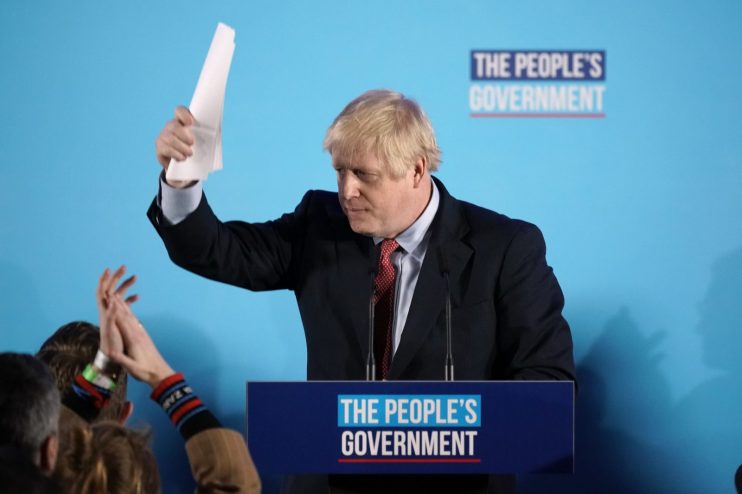A year on from the election, Boris is ensnared in the classic Conservative leadership trap

It seemed like all of Boris Johnson’s plans had come together.
The Red Wall had tumbled, turning Labour heartlands blue for the first time in history. The Prime Minister would return to the Commons with 364 MPs backing him and his oven-ready Brexit deal.
He had vanquished his own party rivals, outplayed a divided Commons, and sealed it with an electoral triumph. He might even have hoped to put to bed decades of Tory wrangling over Europe.
A year on from the 2019 election, much of that holds true. For all the challenges he faces, Johnson remains competitive in the polls. He has managed to resonate with voters all through the pandemic, and even in its worst ravages the Conservatives continued to poll at a level that most incumbent Prime Ministers would envy. He and his team have a great understanding of how to play into the cultural realignment, which is cutting through our politics.
Yet that may not be enough.
The Prime Minister is now tied up in the same conflicts that have consumed each of his Conservative predecessors. Though the subject matter might be new — the necessity of lockdown, the costs of recovery, and the fluctuations in the culture wars — Johnson finds himself facing as much trouble from the MPs behind him as those in opposition.
Already, backbenchers are starting to wonder aloud about letters to the 1922 Committee and the question that haunts every Tory leader has emerged: when and how will it end?
Johnson still has to face down the competing Brexit tribes. Though he expelled the most committed Tory europhiles at the end of the last parliament, there are many in his own party who would take almost any deal to avoid leaving without one.
Equally, the hardline eurosceptics in the ERG, bolstered by some of the selection decisions made a year ago, assail him from the other side.
Beyond these ideological decisions, the Prime Minister must also contend with the differing constituency interests. Negotiations with Europe and the rest of the world face the challenge of protecting export markets for British farmers and fishermen without allowing them to be swamped by cheap imports. At the same time, sheer pragmatism should make it a priority to protect the financiers and service-based economy which is Britain’s most thriving export.
These dichotomies go beyond the exit deal with the EU, if it comes, and will inform every trade partnership we can form with the rest of the world.
Such delicate wrangling must be done in the face of a deep economic crisis. It remains unclear how quickly the country will bounce back from the coronavirus contraction, but the difficult choices the government faces are already apparent. The Prime Minister will be torn between the austerity many of his MPs see as economic orthodoxy and the temptation to borrow and spend his way out of this hole. Unless he is prepared to turn his back on the Tory drive for balanced budgets, he must either cut spending or raise taxes, choosing between his newer, poorer voters and the traditional Tory heartlands.
In truth, Johnson faces the same contradictions that have eventually undone each Conservative leader. Paternalists, protectionists, and populists sit alongside the cosmopolitan neoliberals and free trade diehards. Pragmatism and power pull them together, but once that image is pierced, the ground slips from under whoever has the leadership. It happened to Theresa May after the botched election, John Major after Maastricht and, of course, Margaret Thatcher after the poll tax.
Johnson now finds himself caught in the Conservatives’ eternal dialogue: the competing pressures for freedom and security within his party. These lines have formed not only over Europe but lockdown too, and will become more apparent on immigration and trade as we move away from EU rules. Johnson was an excellent conductor of these conflicting tribes when he went into the election, yet after a gruelling year he has to maintain the stamina to keep them in check.
Conservative Prime Ministers are brought down by their own party more often than by the electorate. Stonking victories and policy successes give them security, but once doubt starts to creep in, they are undone.
Brand Boris was that he was even more invincible than most, and the election seemed to confirm it — yet 365 days on, the world seems quite different, and Johnson cannot help but wonder which of the 364 around him will one day take his job.
Main image credit: Getty
